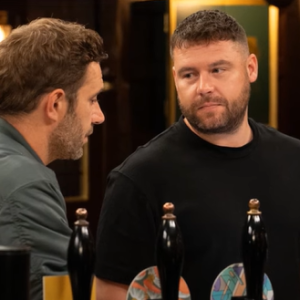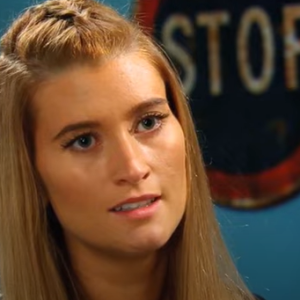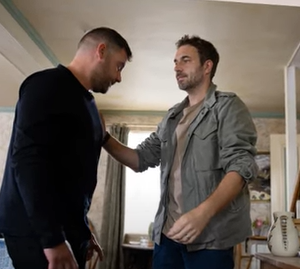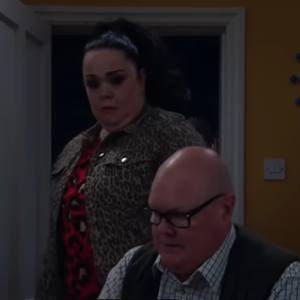The tranquillity of the Dales has been ripped apart by a chilling betrayal that threatens to end one of Emmerdale’s most cherished stories as Moira Dingle finds herself outmaneuvered by a smiling saboteur; what began as a hopeful business partnership has curdled into a calculated campaign to destroy everything Moira has spent her life building, and the revelation that Celia Daniels has been colluding with power players Joe Tate and Kim Tate to systematically undermine Butler’s Farm reads like a masterclass in modern villainy. Viewers watched in stunned silence as Celia, who arrived under the guise of a helpful ally promising lucrative hotel contracts for Moira’s produce, instead orchestrated unpaid deliveries, exploited contractual loopholes and left invoices unpaid until Moira was staring down the barrel of debts she cannot possibly cover; the deceit was clinical, the damage immediate, and the sense that this was not an accident but a deliberate squeeze to force Moira out made every friendly smile Celia had once offered look like a lie. In the quiet terror of that slow-burn betrayal, the audience finally understood the true cost of trusting the wrong person in a world where charm can mask cold ambition.
For Moira, the fallout is more than an accountancy nightmare — it is an existential fissure threatening the very identity she has forged on the land, and watching her face the prospect of losing Butler’s Farm is heartbreaking because it is the erasure of a lifetime’s labour, memory and dignity; Moira’s quiet, stoic defiance has always hidden a vulnerability born of sheer stubborn love for her home, and the cruel calculus Celia and her wealthy allies are pursuing shows how fragile that hard-won security can be when predatory forces choose to weaponise the law and charm. The episode’s most piercing moments came not from shouting but from the small, human reactions — Moira’s mortified realisation that thousands will have to be written off, the sleepless arithmetic of feeding livestock and making mortgage payments, the whispered doubts that maybe she should “tap out before I’m knocked out” — and in those lines the show laid bare the unthinkable possibility that a farming life can be dismantled not by weather or fate but by the deliberate machinations of people with cash and cunning. This is not just a storyline about money; it is a story about loss, legacy and the cruelty of being made disposable in your own home.
Celia Daniels’ transformation from pleasant facilitator to ruthless architect of ruin has reshaped the balance of power in Emmerdale in a way that feels both terrifying and inevitable; played with unnerving ease by Jay Griffiths, Celia embodies a new type of soap antagonist — one who weaponises charm, legal niceties and calculated deceit rather than relying on bombs or bursts of rage — and that makes her all the more dangerous because she pulls the wool perfectly over trusting eyes. The scenes at Home Farm, where Celia calmly outlines Moira’s financial destruction to Joe and Ned and boasts about the timing of the inevitable foreclosure, read like a business meeting crossed with something far darker; there is a merciless arithmetic to her cruelty, the kind that gleefully anticipates the week Moira will be forced to choose between feed and mortgage, and the discussion of a six-month guaranteed rent with the option to lease further land exposes Kim’s ruthless long game. This is villainy practised as procedure: recruit a willing, smiling pawn to do the messy emotional work, then let institutional power and wealth finish the job. For viewers, the slow reveal — from friendly offers to cold profit — is agonising because it shows how easily communities can be hollowed out by those who know how to exploit the smallest legal and emotional vulnerabilities. 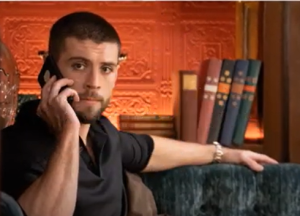
The repercussions of Moira’s potential exit will echo through relationships, loyalties and the village’s moral compass, forcing characters to pick sides in an escalating battle over what remains of the Dales’ communal heart; friends like Dawn and neighbours who trusted Celia will be forced to confront the consequences of misplaced faith, while Charity and Moira’s family will be plunged into a fight to save not just property but dignity. The storyline promises to expose the extent to which money and influence can reshape rural life — who profits when a proud farmer is pushed to sell, who benefits when small producers are squeezed out, and who will stand up to challenge a system rigged in favour of the wealthy. It also sets the stage for seismic character development: Moira’s resilience will be tested beyond anything audiences have seen, and Joe and Kim’s willingness to sacrifice lives and legacies for consolidation of power will deepen their reputations as Emmerdale’s most chilling manipulators. As alliances shift and secrets spill, the village will become a chess
